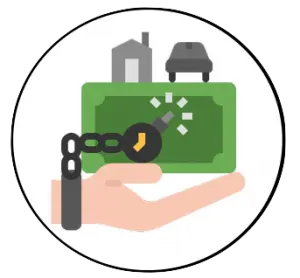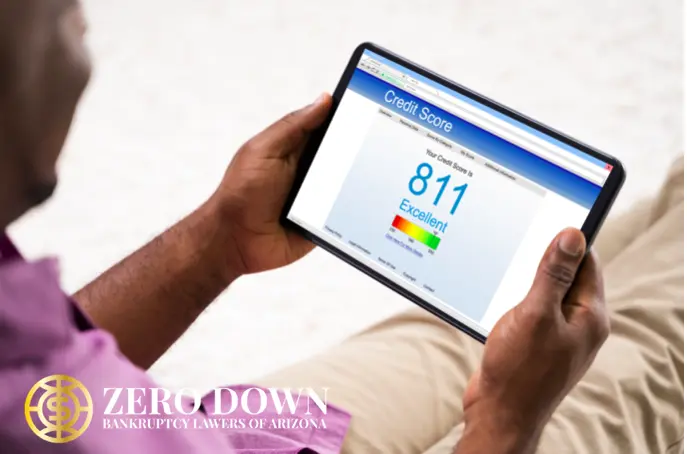REBUILDING CREDIT AFTER BANKRUPTCY
THERE IS LIFE AFTER BANKRUPTCY
Bankruptcy is not the permanent financial disability that many people make it out to be. You have several options on how to increase your credit score after bankruptcy, which will help you get approved for loans in the future. Our experienced bankruptcy attorneys will also guide you through other options that may be available to you based on your specific circumstances. Better yet, our attorneys offer an innovative Zero Dollars Down bankruptcy payment plan option that allows you to pay for your bankruptcy in affordable installments after filing, and includes credit reporting to help boost your score. To learn more about our flexible payment options, as well as more about the bankruptcy process in general, call or use our online form to request your free consultation today. Call (602) 609-7000.
10 STEPS TO REBUILDING YOUR CREDIT AFTER BANKRUPTCY
Before making the decision to declare bankruptcy, many of our clients are concerned about their ability to obtain financing and open lines of credit after their debts have been discharged. This concern is reasonable- a Chapter 13 bankruptcy will remain on your credit for 7 years, and a Chapter 13 bankruptcy will remain on your credit for 10 years from the date of filing. The impact that bankruptcy has on your credit can vary based on several factors, like the chapter you file, the types of debts you have, and the status of your accounts before filing. While most people can expect a bankruptcy filing to ding their credit, some debtors can see a slight improvement in their credit. However, when used correctly, bankruptcy can actually be your opportunity to move forward and build a new credit history. Read on to learn more about the steps you can take to build a new, strong credit history after bankruptcy. When you’re ready to learn more, call or use our online form to schedule your free consultation.
10 STEPS TO REBUILD YOUR CREDIT IN ARIZONA AFTER A BANKRUPTCY
After your bankruptcy discharge has been processed, you will begin receiving new credit offers in the mail. Due to your prior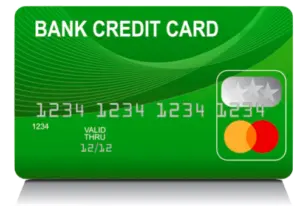 bankruptcy filing, you may not receive as favorable interest rates and fees as before you declared bankruptcy. You should review all of these offers carefully to make sure that you only select the best possible options. These offers also don’t guarantee that you will be approved. Make sure that you fully understand the terms of any credit cards you open after bankruptcy.
bankruptcy filing, you may not receive as favorable interest rates and fees as before you declared bankruptcy. You should review all of these offers carefully to make sure that you only select the best possible options. These offers also don’t guarantee that you will be approved. Make sure that you fully understand the terms of any credit cards you open after bankruptcy.
As you may know, your creditors’ reporting your payment history to the credit bureaus is one of the factors that goes into determining your credit score. Not all of your creditors will report payments, so this may be a factor you consider when choosing new lines of credit. It also doesn’t hurt to ask about credit reporting for your other recurring payments. Rent, streaming services, your cell phone and monthly plan, and other recurring payments may all offer the option of credit reporting. If you opt in, your timely payments will improve your credit score, but late payments will decrease your score.
Your revolving available credit balance is another factor that determines your credit score. In addition to avoiding interest charges, paying your balance as close to in full as possible each month will help you keep a high revolving available balance. Some experts recommend keeping your balance at about 30% of what is available.
There is no point in your opening new lines of credit after bankruptcy if you aren’t going to make your payments on time. You should consider enrolling in autopay or setting reminders on your phone if you have difficulties remembering to make your monthly payments. Making several payments throughout the month that are less than your full balance will ensure that you have at least made your minimum monthly payment.
Not every debt can be discharged in bankruptcy. While bankruptcy will clear away debts like credit cards, medical bills, personal loans, evictions, judgments, unpaid bills, repossessions, and more, there are several types of debt that will remain despite a bankruptcy filing. Child support, alimony, student loans, and some taxes are just a few examples of debts that will not be discharged in either type of consumer bankruptcy. Secured debts, or debts with an asset as collateral, also won’t be discharged in bankruptcy if you keep the asset. You must remain current on all of these payments after your bankruptcy has been discharged to help improve your post-bankruptcy credit score.
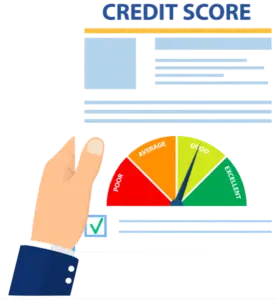
You may be hesitant to open new credit cards after bankruptcy, and with good reason. You will be ineligible to declare bankruptcy again for a certain number of years after your discharge. That’s why many people who discharge their debts in bankruptcy choose instead to open a secured credit card through their bank. This is essentially a prepaid credit card, which will take out the risk of spending more than you can afford. Even with the reduced risk factor, using a secured credit card can help you boost your credit score after filing bankruptcy.
Obviously, it’s always better to maintain steady employment when you’re trying to recover from debt. However, your employment history is another factor that goes into future lenders’ decisions on whether to extend your credit. This shows reliability and that you will have the means to repay the potential debt. Lenders will look back 24 months, or 2 years, when reviewing your employment history for credit approval purposes.
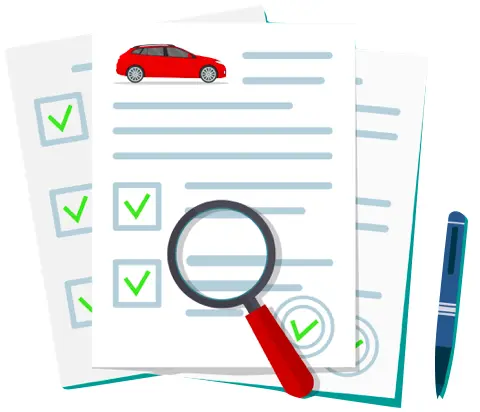
Obviously, this step shouldn’t be taken unless you trust the person who adds you to their account. Unfortunately, you might not be approved for credit applications on your own after bankruptcy. A co-signer will be liable for your debt if you fail to repay it. This type of security net will make lenders more likely to approve your credit applications. You may be able to utilize a co-signer on auto loans, rental leases, and more. If your co-signer is hesitant, you can inform them about the mandatory waiting periods before you are able to discharge your debts in bankruptcy once again.
You’re probably aware that if you finance your vehicle, your payments towards that loan will affect your credit. However, if you keep the same vehicle through your bankruptcy, your lender is no longer required to report payments that could help improve your score. They can continue to report late and missed payments, meaning your current vehicle only has the potential to hurt your credit after bankruptcy if not paid in full.
One option many bankruptcy filers choose to utilize is surrendering their vehicle in bankruptcy. This is a great option if you have an older vehicle, one with mechanical issues, owe more on it than it’s worth, or simply don’t want the vehicle anymore. Should you finance a new (or new to you) vehicle after filing bankruptcy, that lender will be required to report positive marks on your credit. You won’t have to wait until your case is discharged to obtain lending, either- many of our clients can finance a new vehicle shortly after filing their bankruptcy petitions.
How Quickly Will Your Credit Score Improve After Filing Bankruptcy in Arizona?
You can start working on improving your credit immediately after receiving your discharge from a bankruptcy. With the proper steps taken, you can see marked improvement to your credit score in 12-18 months after filing. Your score won’t go up right away, however, the sooner you get started on re-building your credit, the sooner your credit score will start to increase.
PHONE
602-609-7000
HOURS:
Monday-Thursday 8:00 AM – 7:00 PM
Friday: 8:00 AM – 6:00 PM
Evening and Weekend hours available by appointment
EMAIL
[email protected]

